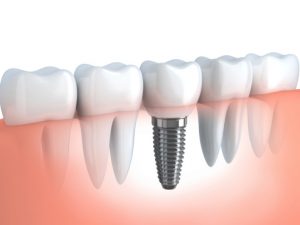Understanding Dental Implant Risk Factors
Learn what risk factors to avoid for a successful implant procedure.

Dental implants in general have an extremely high rate of success. However, this is predicated upon implant dentists carefully screening patients and making sure only individuals who are good candidates for dental implants are advised to go through with the procedure.
Here are some of the most common risk factors that could interfere with the proper healing of dental implants:
Inadequate Bone Density: In order to support the dental implant peg, patients must have sufficient bone density in the area where the implant is to be placed. In some cases, bone grafts may be needed to make dental implants possible.
Antidepressant Use: According to a new pilot study from the University at Buffalo, antidepressants use can affect healing after a dental implant procedure. Specifically, the drugs interfere with the regulation of bone metabolism, which prevents the bone from growing around the implant peg to secure it. In the study, antidepressant use increased the odds of implant failure by a factor of four. Each additional year of drug use doubled the risk.
Tobacco Use: Smokers are twice as likely to suffer an implant failure than non-smokers. The risk is greatest during the healing process, since smoking can delay healing and increase the chance of infection due to the way nicotine and other chemicals restrict blood flow to the implant site. Smoking can also make bone loss around the implant occur at a slightly faster rate, which leads to an increased risk of implant failure over time.
Diabetes: Because of the link between diabetes and gum disease, diabetes can potentially create a risk for early implant failure if patients are not careful to keep populations of oral bacteria and their blood sugar well under control. In one study, 28 percent of patients with diabetes suffered an implant failure.
Bruxism: Bruxism, or teeth clenching and grinding, is a very bad habit for people with implants. This habit puts pressure on the implants before they are fully healed, which increases the risk of implant failure. In one study, 29 percent of patients with bruxism suffered an implant failure.
Are You a Good Candidate for Dental Implants?
If you are missing one or more teeth, you should ask your dentist about the possibility of getting dental implants. At California Dental Group, we will carefully assess your risk factors and provide our honest opinion as to whether this procedure is right for you. To make an appointment, call one of our clinic locations today.




